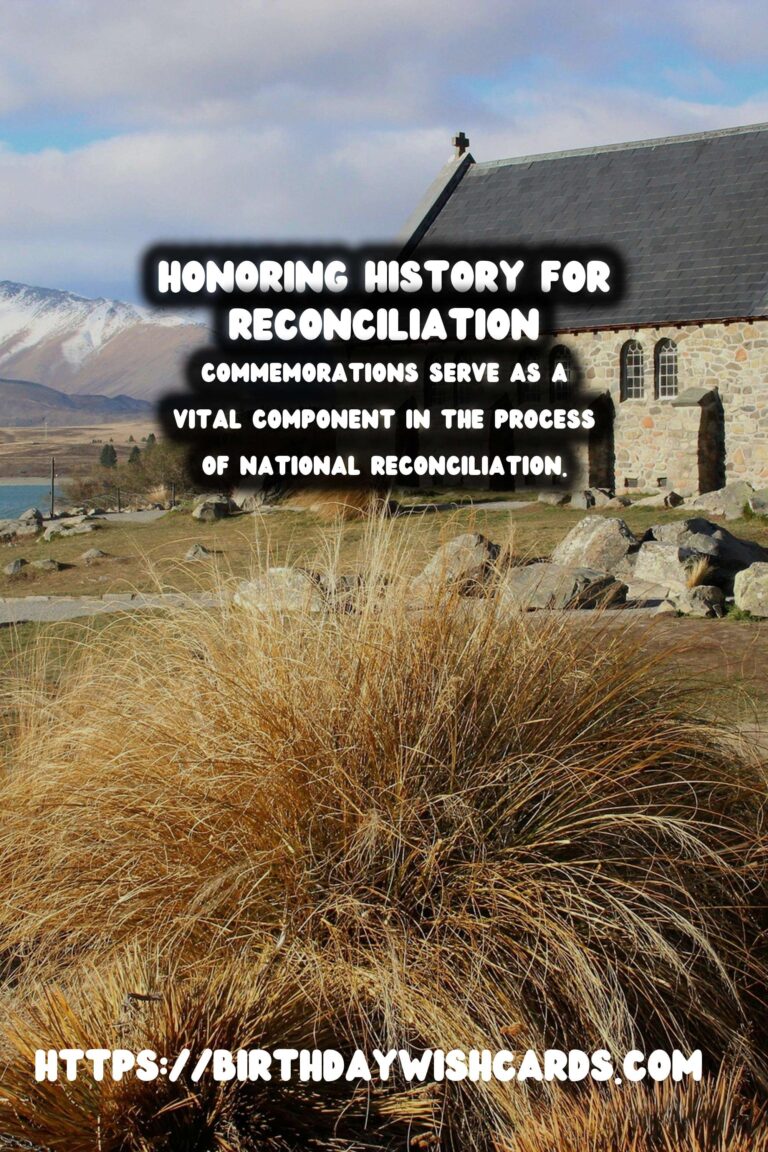
Historical commemorations play a significant role in the social and political landscape of a nation. They serve as reminders of past events, ushering a chance for dialogue and reconciliation. While some might ponder the relevance of revisiting history, commemorations are essential in shaping collective memory and fostering unity among diverse groups.
Understanding Historical Commemorations
Historical commemorations are public celebrations or official ceremonies that mark significant events, places, or individuals in history. They often take the form of parades, memorials, ceremonies, or educational programs. Such occasions are potent tools that impact collective memory, offering a platform to reflect on the past and learn from it.
Events such as Independence Day, Remembrance Day, or significant anniversaries of historic milestones provide opportunities for citizens to express national pride, mourn past injustices, and celebrate progress. These occasions bring history into the public sphere, making it accessible and relevant to the daily lives of individuals.
The Importance of Commemorations in National Reconciliation
National reconciliation refers to the process through which a society comes to terms with its past, particularly in the aftermath of conflict or division. Successful reconciliation demands an acknowledgment of past wrongs, sincere apologies, and tangible steps towards reparations and healing. Commemorations serve as a vital component in this process.
Firstly, commemorations provide a platform for recounting historical narratives, thus informing society about different perspectives and experiences. This understanding is crucial for building mutual respect and resolving longstanding grievances. Through education and awareness, they foster empathy and compassion among conflicting groups.
Secondly, these events can promote inclusive narratives that honor multiple voices within a nation’s history. Celebrating the achievements and acknowledging the struggles of marginalized communities fosters a sense of belonging and unity.
Examples of Successful Commemorative Practices
A successful example is found in South Africa, where public holidays commemorate the end of apartheid. The national celebrations of Freedom Day and Reconciliation Day are not just holidays but crucial reminders of a victorious struggle for equality and the ongoing journey towards social harmony.
Similarly, Australia’s Anzac Day, originally meant to honor soldiers from World War I, has evolved to include narratives from diverse cultural backgrounds, reflecting a more comprehensive story of the nation’s history.
Challenges and Criticisms
Despite their potential benefits, commemorations are not without challenges. At times, they can become platforms for political agendas or perpetuate unequal power dynamics if not managed with sensitivity and inclusivity. This can result in feelings of alienation among already marginalized groups.
Moreover, the choice of who and what to celebrate often reflects prevailing values which can sometimes exclude minority experiences or reinforce painful memories for some.
The Future of Historical Commemorations
The future of historical commemorations lies in their ability to adapt to an ever-changing society. As debates about statues, national holidays, and public memorials continue, it is essential to consider how these commemorations reflect contemporary values. Creating spaces for dialogue and incorporating diverse perspectives can transform these events into meaningful rituals of healing and unity.
By investing in education programs, interactive exhibits, and inclusive narratives, societies can ensure that commemorative events remain relevant and contribute positively to national reconciliation.
Historical commemorations are essential in shaping collective memory and fostering unity among diverse groups. Commemorations serve as a vital component in the process of national reconciliation. 
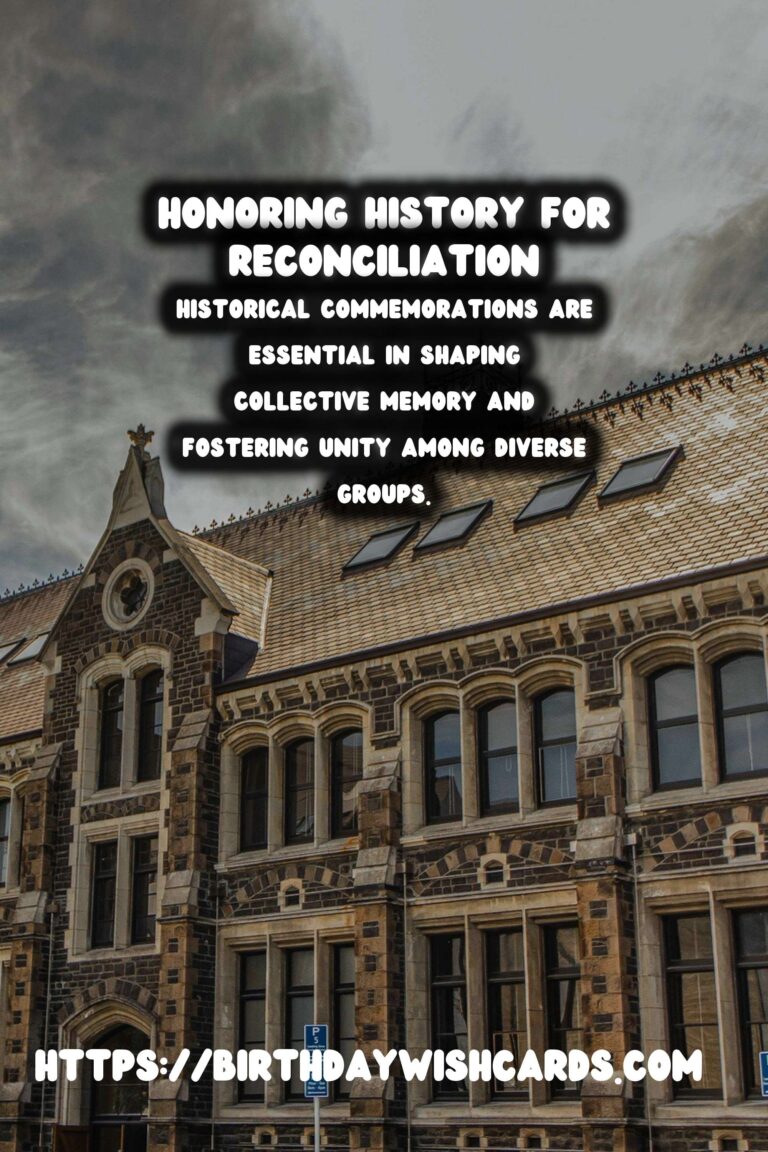
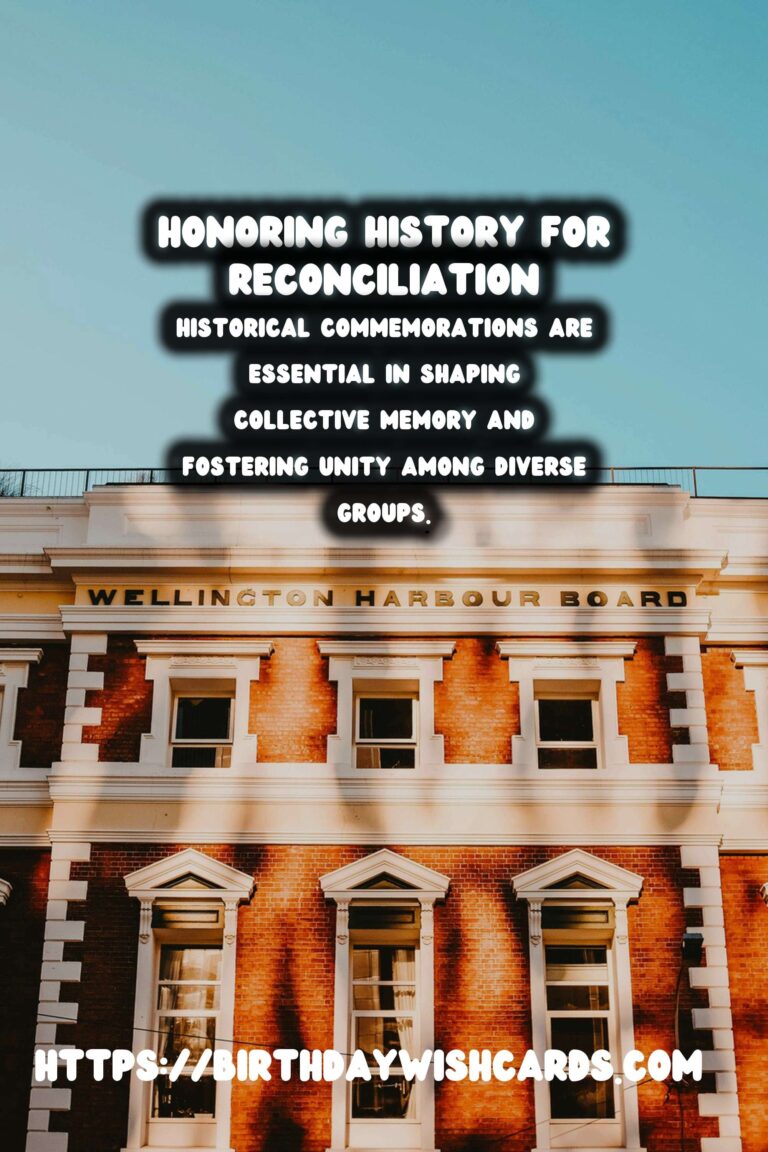
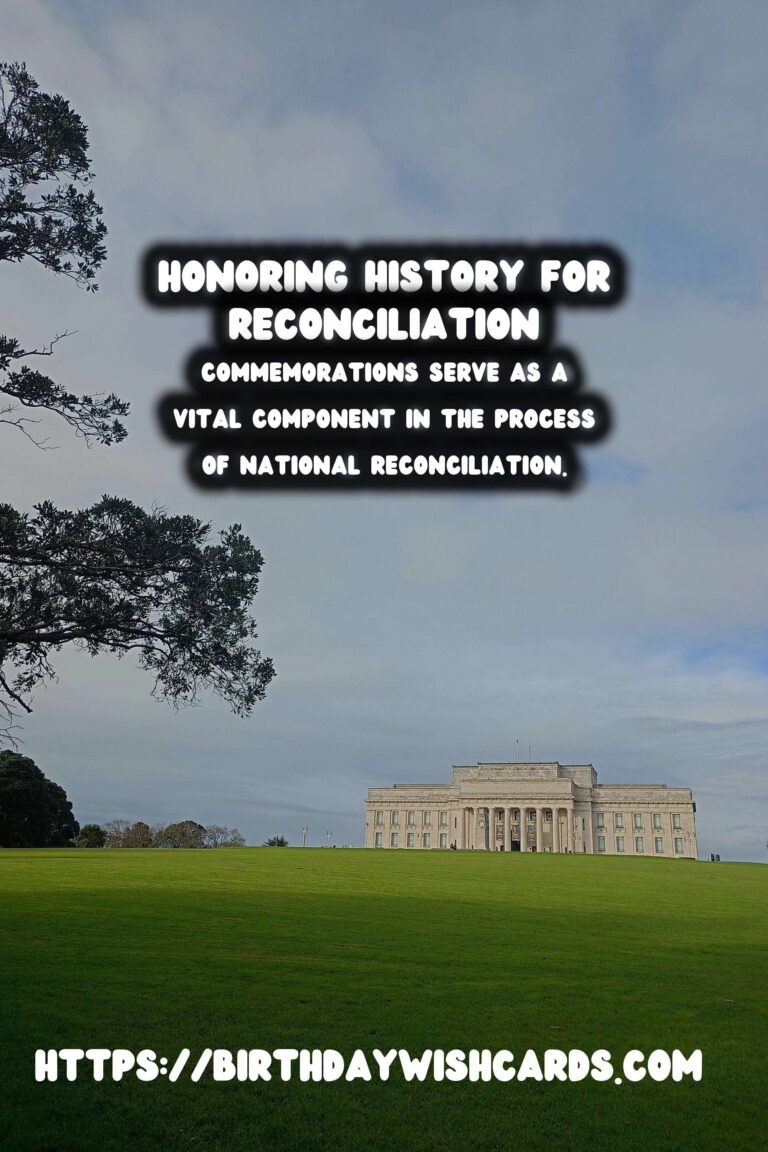
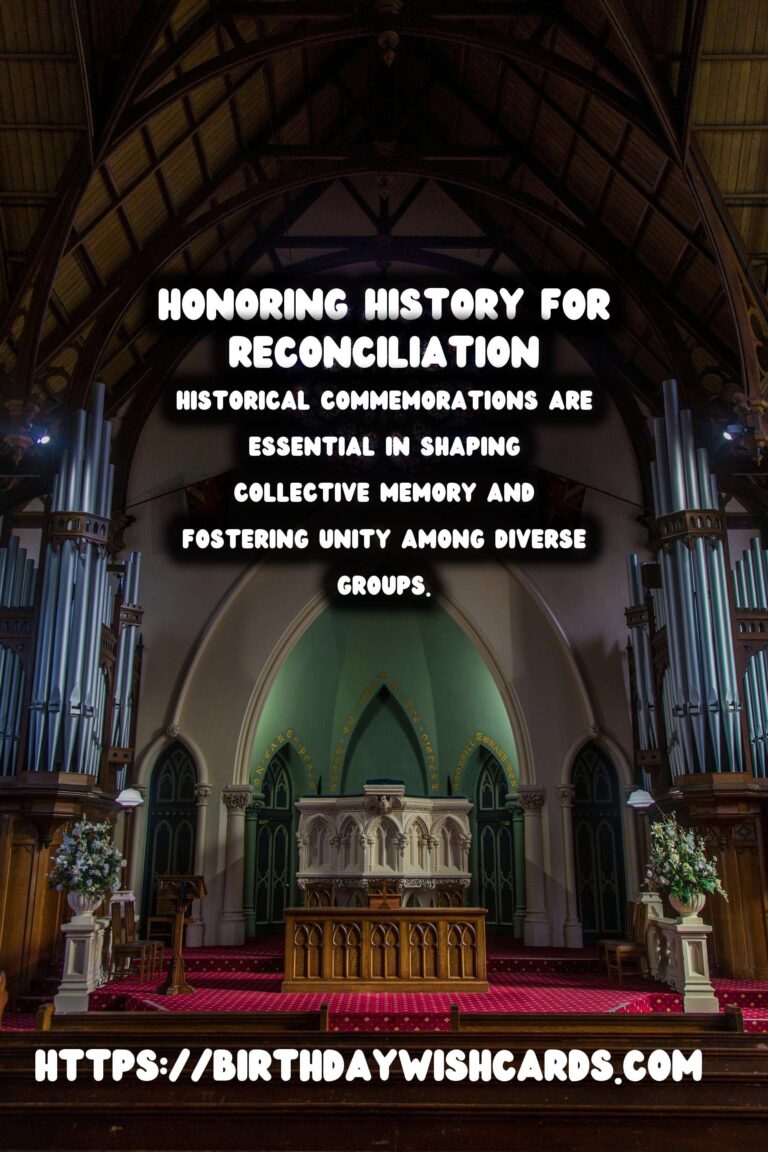
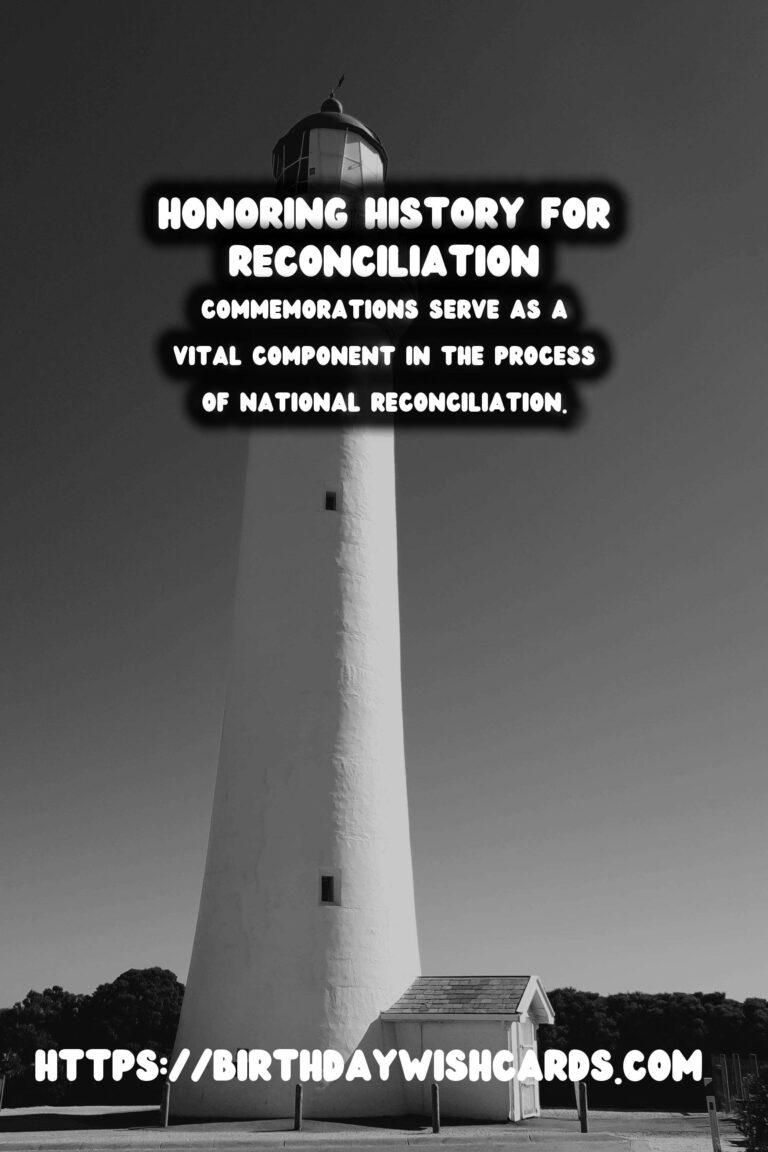
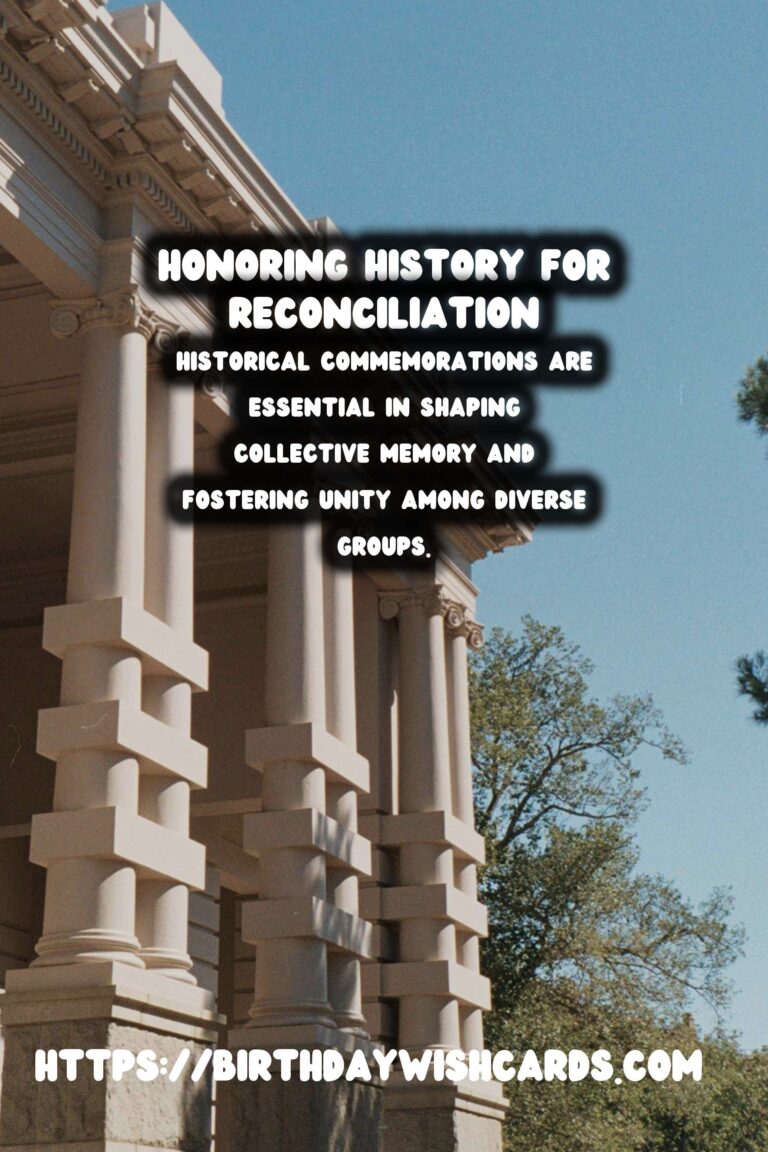
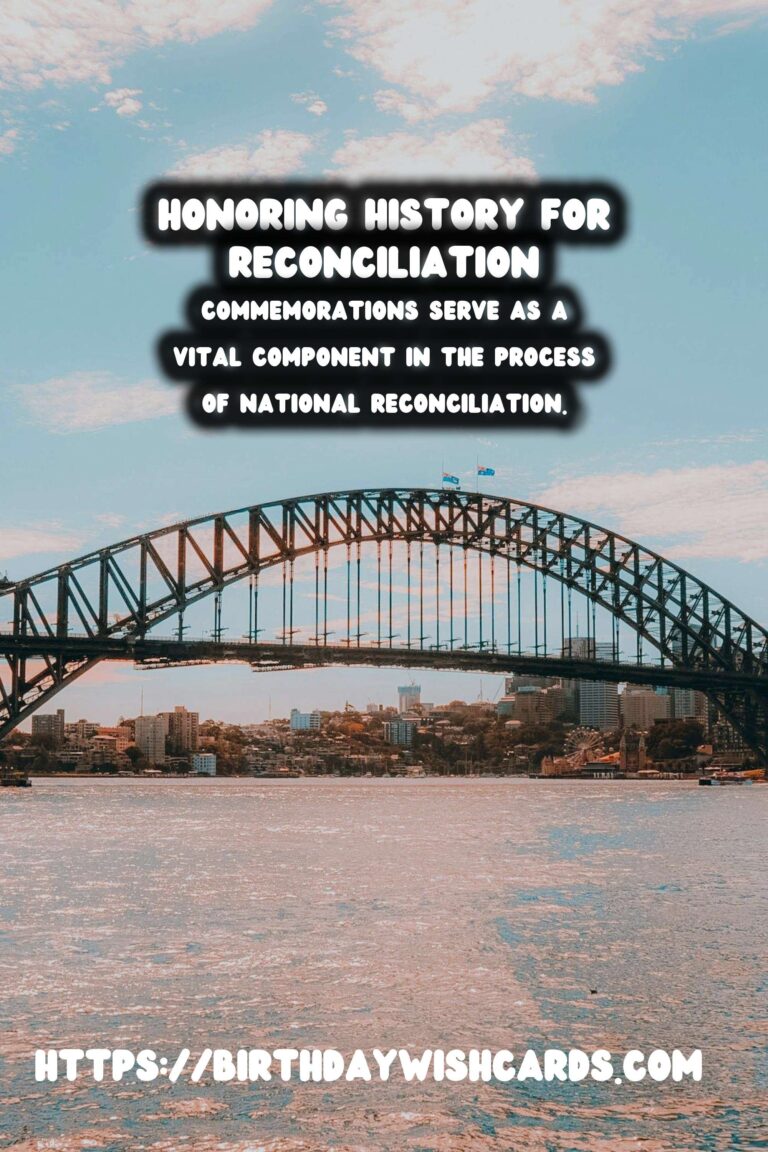
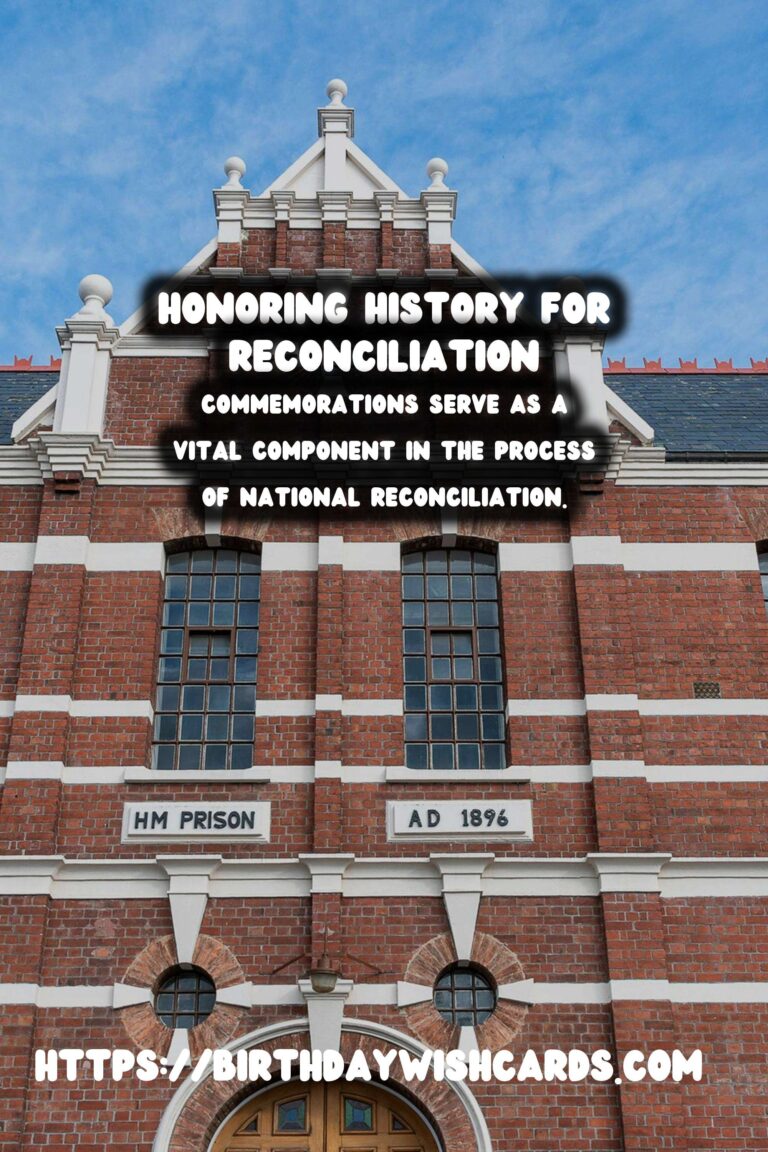
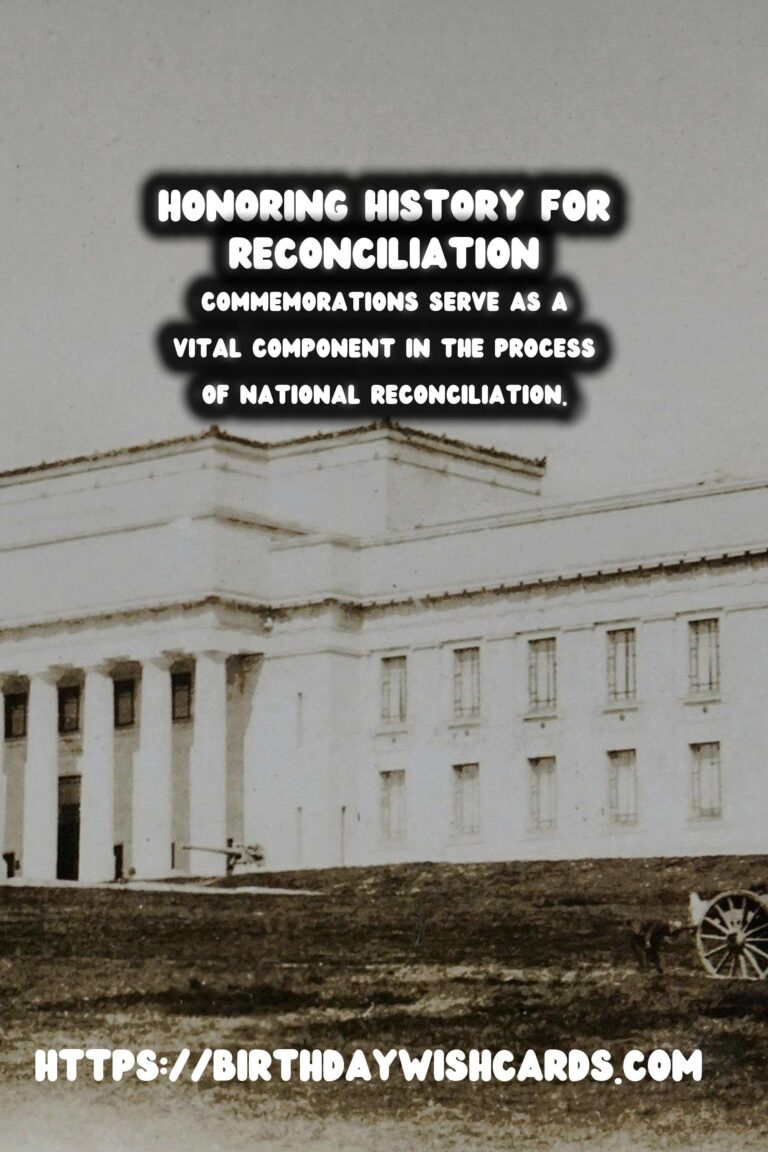
#HistoricalCommemorations #NationalReconciliation




